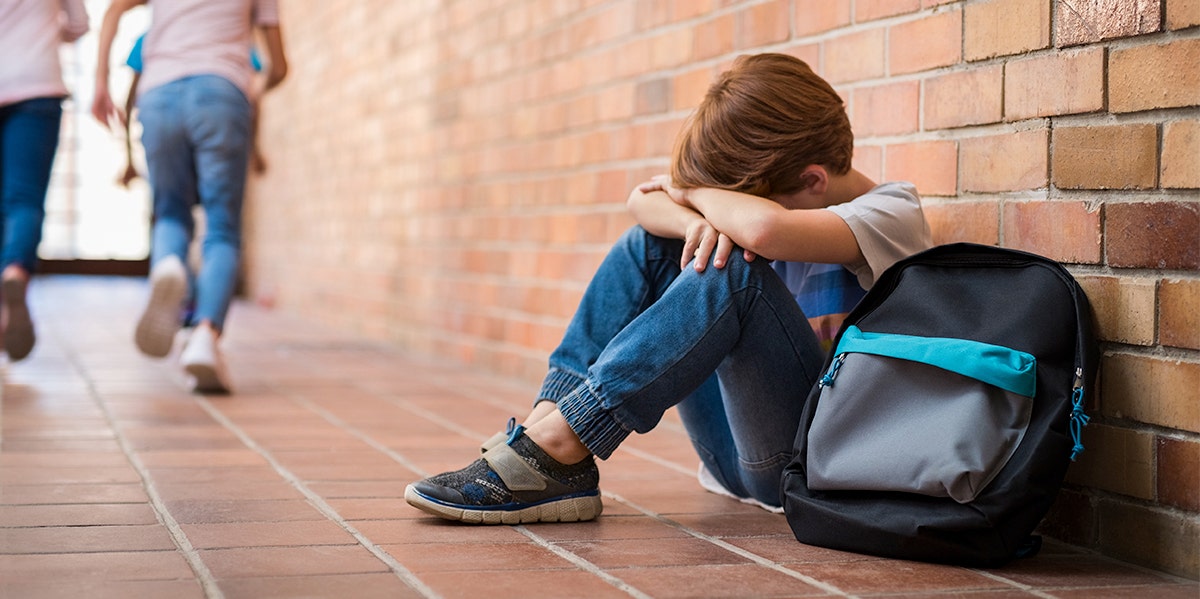3 Things To Do Immediately If Your Child Is Being Bullied
Teach them that they are not powerless.
 Rido / Shutterstock
Rido / Shutterstock Many children experience bullying.
If your child is being bullied or engaging in bullying behavior themselves, they will witness bullying and be affected by it.
As a witness, the child will either identify with the target and feel shame, fear, and vulnerability, or be tempted to seek the status associated with the dominant bully.
Bullying has been defined as one or more individuals inflicting physical, verbal, or emotional abuse on another.
The roots of bullying are in our universal desire for social status and our tendency to compete for status by trying to achieve dominance over our peers through verbal competition but also by emotional and physical intimidation.
If we were tiger cubs wrestling with one another, we would think this behavior was cute.
But, far too often, the struggle for status crosses the line into abuse, causing lasting harm to the recipient, and also establishing a dysfunctional behavior pattern for the bully which can lead to problems later in life.
What exactly can parents do?
You can certainly lobby for anti-bullying efforts in your children's schools.
But it may prove even more effective to begin at home with some education about emotions and behaviors your kids will experience when you are not around to protect them.
Here are three ways you, as a parent, can fight bullying at home if your child is being bullied:
1. Understand, acknowledge, and stand up to bullying behavior in the family
Understanding the emotional dynamics of teasing and bullying, how it makes us feel, and why it is almost unavoidable plays an important part in emotional intelligence training for children that begins as soon as they are talking.
They will need words to describe the "bad" feeling of shame that happens when they're teased or bullied past the point of their own confidence.
Since this is likely to happen at home in the struggle between siblings, but also in the interaction between adults and children, there are opportunities to recognize and label this feeling. Recognizing and labeling the feeling and the behavior causing the feeling is the first step in figuring out an effective way to respond, rather than just reacting to your feelings, which often leads to the urge to retaliate.
2. Teach your children resilience skills
Understanding feelings and developing choices about how to respond to feelings gives us all more flexibility.
Without choices, we find our behavior and internal life dictated by the primal emotions evoked by teasing or bullying.
Shame makes us hide, surrender, and want revenge. We can be creative and resourceful in developing other responses when we understand what is happening.
Children can be enormously resilient.
The more they are encouraged and supported in developing creative responses to life's challenges, the more resilient they can be.
3. Encourage your children to stand up to bullying when they witness it
It is not necessary to overpower a bully in order to stand up to bullying. You don’t have to be superman to be a hero.
Choosing not to be a passive observer is one way of taking a stand.
Befriending the target of bullying is a way of standing with the targeted one rather than standing with the bully.
Reporting or helping to report bullying is another way of standing up.
And the various acts of standing up against bullying help build a feeling of compassionate strength that helps the child feel stronger in their own self-image.
Children may ask, "What if standing up to bullying makes you a target?"
The fact is that fearing the bully already makes you a target, and there is no guarantee that hiding will protect you.
Figuring out the safest ways to stand up to bullying is the best way to avoid becoming a victim.
Brock Hansen, LCSW, author of Shame and Anger: The Criticism Connection, is a clinical social worker and personal effectiveness coach with over thirty years of experience in counseling individuals with a variety of problems related to shame and anger.

